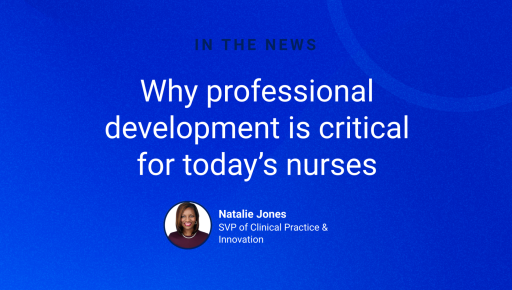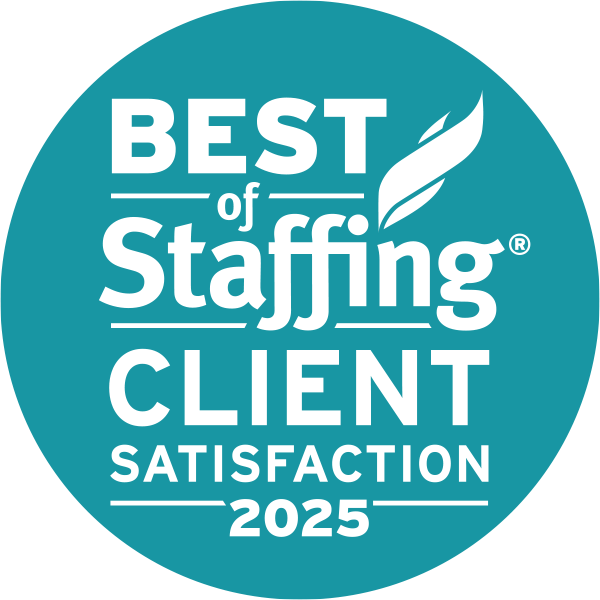Updated July 1, 2024
Ask the average person how to get a job in healthcare, and most will mention the importance of obtaining a formal degree. A Bachelor of Science in nursing or a Doctor of Medicine can certainly help you find a high-paying job in the healthcare field.
There are also jobs, however, that don’t require any formal education. You may need to gain certifications to obtain one of these no-degree occupations, but programs are quick and offered at many community colleges and vocational schools around the country.
In a matter of weeks, you could be working in a stable and lucrative job without having to commit to a two- or four-year education. But which options do you have? Learn more about the healthcare jobs that don’t require a degree to see if they’re a match with your goals.
5 healthcare jobs with no degree requirement
If you’re looking for a rewarding healthcare career but don’t want to spend years in school, the following options could offer the challenge you’re searching for.

1. Home Health Aide
Home health aides are healthcare workers who offer basic care at home to those who can’t take care of themselves. Home health aides help people of all ages, including the elderly and people with disabilities who would otherwise have to go to a facility to get care.
As a home health aide, you help people remain at home and as independent as possible. You’ll assist with daily personal tasks, including bathing and dressing, while also performing some basic housekeeping services, like laundry.
You’ll also check the client’s temperature, pulse, and respiration rates, and help with simple prescribed exercises. Home health aides are usually under a nurse’s supervision, but you could work with other medical staff, too.
To become a home health aide, you need a high school diploma or its equivalent. Certain states may require certifications or licenses, which could mean passing a background check, completing basic training, and passing a competency exam.
Home health aide jobs are expected to continue growing until at least 2032, with about 684,600 job openings available per year. The median annual salary is $33,530.
2. Medical Records Specialist
A medical records specialist compiles, processes, and maintains patient files. Often, they also input patient information into the facility’s records system. They ensure that all of the information is accurate and complete while also maintaining records for data analysis and insurance reimbursement purposes.
The position involves many recordkeeping and data entry tasks and requires the use of electronic health record systems. Although you’d not be working directly with patients, you would be interacting regularly with registered nurses. The majority of health records specialists work in hospitals and doctors’ offices.
For most people, a high school diploma or its equivalent is enough to become a medical records specialist. Some states may require certification, and some employers may want you to complete a particular certification once you’ve been hired.
Until at least 2032, 15,000 new medical records specialist job openings are expected each year. The median annual salary is $48,780.
3. Pharmacy Technician
Pharmacy technicians help pharmacists dispense medication to healthcare professionals or customers. They can measure medications for prescriptions, package and label the prescriptions, and organize inventory. If there are shortages of particular medications, they alert the pharmacist. Pharmacy technicians also process insurance claims.
Another important task that pharmacy technicians perform is taking phone calls from customers and arranging for them to speak with the pharmacist as needed. In this position, you work under the pharmacist’s supervision in hospitals or retail pharmacies.
To become a pharmacy technician, you’ll need a high school diploma or GED. You’ll learn the various skills you need during on-the-job training. Some states may require background checks, while others do ask for certification.
There are expected to be 44,900 job openings for pharmacy technicians each year until at least 2032. The annual median pay is $40,300.

4. Phlebotomist
Phlebotomists draw blood for tests, donations, and research while also helping patients who may experience adverse reactions to the blood draw or who may be nervous about the procedure. They verify identity, label the blood samples, and even prepare labels for other types of samples, including urine.
Phlebotomists assemble and discard medical instruments like syringes and needles, and they’re in charge of keeping the work area sanitary. As a phlebotomist, you have access to patients and will generally be supervised by a nurse. The majority of phlebotomists work in hospitals and diagnostic laboratories.
Some positions only require a high school diploma or GED and training. You can also get a postsecondary non-degree award from phlebotomy programs, which are usually available in community colleges and vocational schools. Some states may require completing an accredited training program.
About 19,500 new job openings are expected every year until 2032. A phlebotomist’s median annual pay is $41,810.
5. Medical Assistant
Medical assistants work directly with patients, interviewing them and taking their medical history. They also measure a patient’s vital signs, including temperature and heart rate, and help physicians with examinations. Depending on the state, a medical assistant may also be able to administer certain injections.
They handle many administrative tasks, including scheduling appointments and entering patient information into medical records. You may need to maintain office and medical supplies, as well.
The tasks you perform will often be affected by the medical practice in which you work. In an ophthalmologist's office, for example, you may help patients learn about using and caring for contact lenses.
Becoming a medical assistant with just a high school diploma or equivalent is possible. Some employers may require a medical assistant certificate, which you can complete in a community college. If you only have a high school diploma, you'll need on-the-job training.
On average, there are 114,600 job openings expected each year until 2032 for medical assistants, making it one of the fastest-growing occupations. Median annual pay is $42,000.
Start your career in healthcare, no degree required
Just because you don’t have a degree doesn’t mean you can’t work in healthcare. By choosing options that only require a high school diploma or its equivalent as well as on-the-job training, you can start making a difference in people’s lives as well as earning a good salary.
One of the most important things about choosing a job in healthcare is that most positions are expected to continue growing for years. With significant numbers of annual job openings, you don’t have to worry about being able to find a job.
If you’re ready to start looking for your ideal role in the healthcare field, click below to search Prolink’s latest healthcare jobs now. If you’re looking for something specific or aren’t sure where to start, connect with a Prolink recruiter to get the assistance you need.









